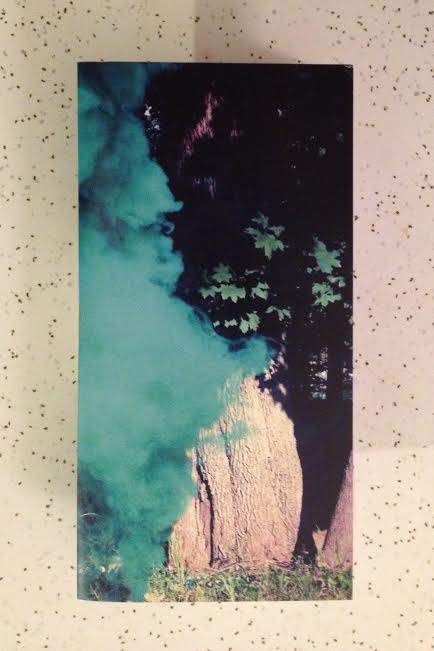This article can also be found by way of our cosponsor, Poetry Society of America, in their

Linnaeus: The 26 Sexual Practices of Plants by Emily Skillings
Artwork by Nicole Heffron
***
***
Emily Brandt and Alex Cuff on No, Dear
Alex Cuff is a poet and public school teacher living in Brooklyn. Her writing can be found online in Apogee Journal, Sink Review, Leveler and Two Serious Ladies and is forthcoming in 6×6 and the Poetry Project Newsletter. She’s a graduate of the Milton Avery School of the Arts at Bard College and co-founding editor of magazine.
***
What is your own personal history with chapbooks? How did they first catch your interest?
We’ve both been reading and admiring chapbooks for over a decade. The form is so inviting and accessible, and such a perfect way to be introduced to a writer whose work you don’t know. A chapbook is like that first conversation at a party – it can be super amazing, or fall a little flat. When it’s amazing, it opens up a totally new relationship with a writer’s work. One of our favorite things is reading the first book of someone who’s chapbook blew us away.
What made you first decide to start publishing chapbooks?
When was born, almost eight years ago, we discussed eventually publishing chapbooks in addition to the journal. The conversation always came back to this form. We chatted about it with the brilliant Jen Hyde from Small Anchor Press a few years ago, and decided to collaborate on one. Now we’re working on our fourth. We see it as an extension of the work we’re already doing to publish emerging poets in New York City. It also deepens our relationship to a particular poet’s work—our first three chapbooks were written by poets who we’d previously published in No, Dear.
Could you talk a little bit about your own process of making and publishing chapbooks?
The three of us (Alex, Emily, and Jen) read submissions via Submittable, ensuring that everything gets read by at least two of us. We come up with a short list of finalists to discuss in person, and then meet up and read each collection aloud, discussing the work’s impact on us. The hardest part is narrowing it down to just one manuscript. Production is definitely a collaboration between us three, the poet, and any artist(s) we bring in for visuals.
What is unique about the chapbook form, or why chapbooks and not book-books?
A chapbook often represents a singular moment or obsession for the writer. Unlike a full-length book, it can be a small handful of poems placed in intimate relation to the design of the chapbook. Similar to the journal we publish twice a year, we like that a chapbook can be read and reread over the course of a subway ride.
Do you have recent favorite chapbooks from another press?
A few favorites: Nature Poem, self-published by Tommy Pico, Wifeby Caitie Moore (Argos Books), For Love or Money by Sarah Jaffe and Melissa Gira Grant (Guillotine), The Happy End by MoÃ?nica de la Torre (The Song Cave), A History of the Human Family by Sasha Steensen and (Ir)Rational Animals by Steven Karl (Flying Guillotine), Mala by Monica McClure (Poor Claudia), POEMS by Joshua Beckman (Brother in Elysium), Legal Pure by Eric Amling (Greying Ghost).
What does it mean to the chapbook and experimental publishing community to come together and compare projects once a year at the CUNY Chapbook Festival?
It’s a chance to stock up, experience writers whose books haven’t come out yet, and talk to other publishers. And it’s a validation that the love for book-making and poetry is alive and that the community is pouring resources into making sure that poets are read.


